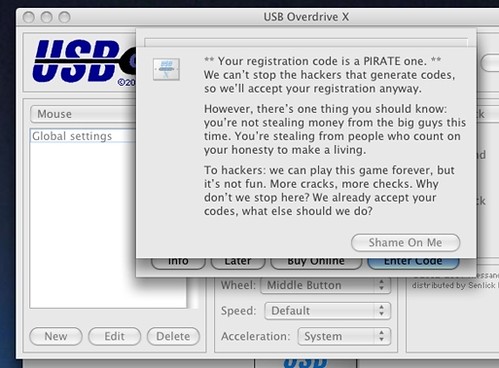from the what-does-that-tell-you? dept
You may recall when
The Dark Knight opened, we pointed out that its record breaking opening was because movie makers created a movie that
people wanted to see in a theater. The fact that parts of the movie were designed for IMAX theaters drove many people to pay even more (or even see the movie multiple times) in order to experience the IMAX version, which simply can't be replicated at home. As we pointed out, this was a perfect example of how the movie studios could compete with free. In fact, in such a scenario, you could even make the argument that the more people saw the movie in download format, the more willing they would be to go pay to see the IMAX version, to get the full experience.
However, it was stunning to hear movie industry execs then claim that the
reason the movie was so successful was
because of their
anti-piracy efforts. That was clearly untrue at the time, and now
Parker Mason alerts us to the fact that
The Dark Knight was not just the biggest grossing film, but
also the most pirated film of the year. Of course, if you believed the studio execs, that would be impossible. After all, if so many people are downloading the movie, then clearly they're "stealing" from the industry and would never go see the movie. But, seeing that the movie made record profits, it seems to show that's simply incorrect. Many people, reasonably, viewed the download as
marketing, convincing them to go see the movie in the theaters.
Filed Under: batman, dark knight, movies, mpaa, piracy


